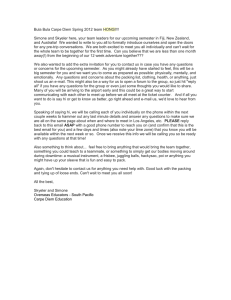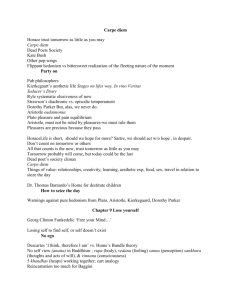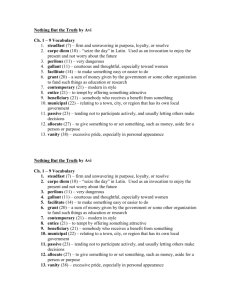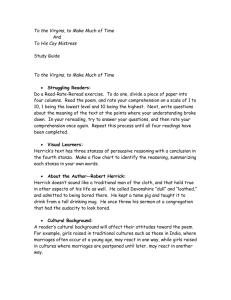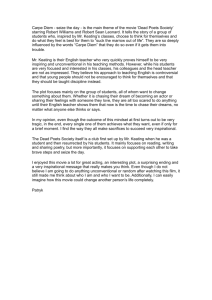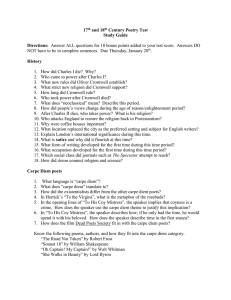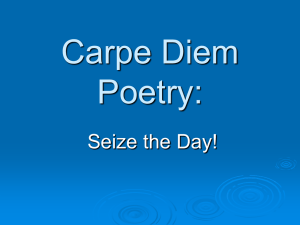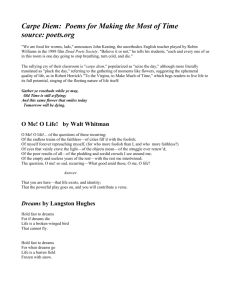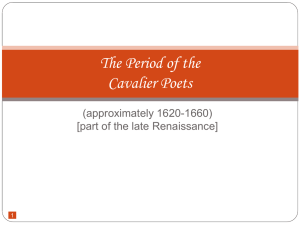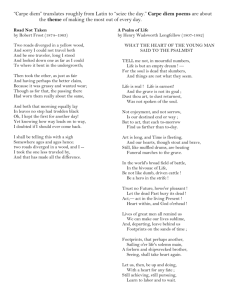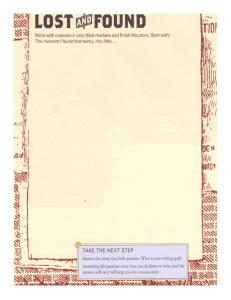Carpe Diem Poetry
advertisement
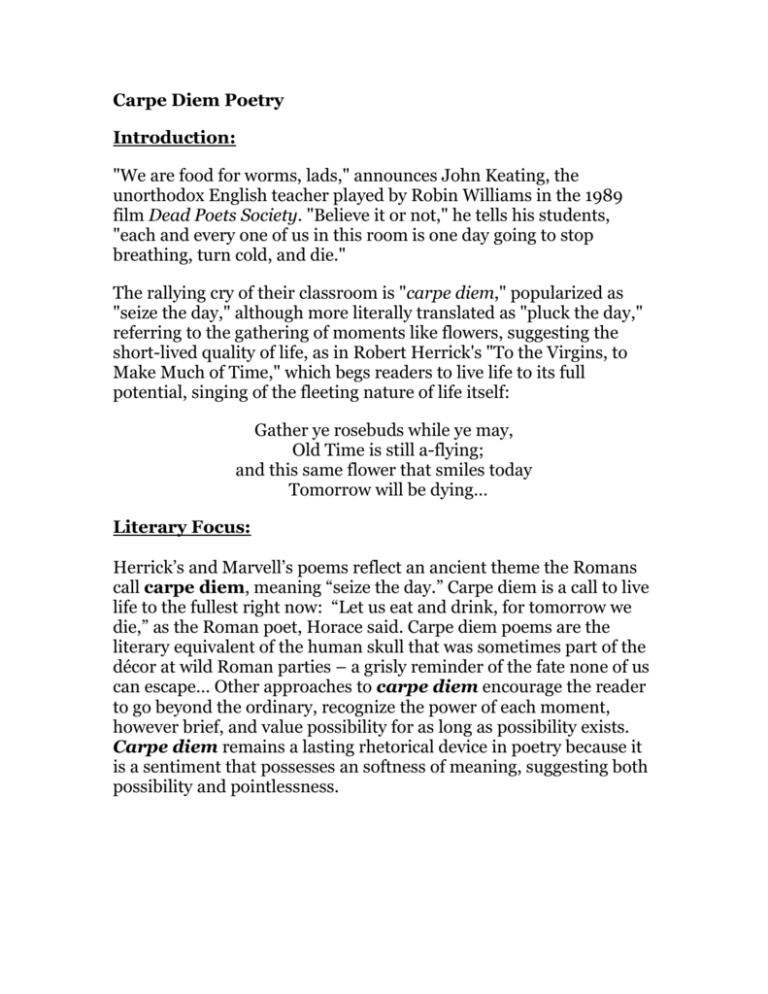
Carpe Diem Poetry Introduction: "We are food for worms, lads," announces John Keating, the unorthodox English teacher played by Robin Williams in the 1989 film Dead Poets Society. "Believe it or not," he tells his students, "each and every one of us in this room is one day going to stop breathing, turn cold, and die." The rallying cry of their classroom is "carpe diem," popularized as "seize the day," although more literally translated as "pluck the day," referring to the gathering of moments like flowers, suggesting the short-lived quality of life, as in Robert Herrick's "To the Virgins, to Make Much of Time," which begs readers to live life to its full potential, singing of the fleeting nature of life itself: Gather ye rosebuds while ye may, Old Time is still a-flying; and this same flower that smiles today Tomorrow will be dying… Literary Focus: Herrick’s and Marvell’s poems reflect an ancient theme the Romans call carpe diem, meaning “seize the day.” Carpe diem is a call to live life to the fullest right now: “Let us eat and drink, for tomorrow we die,” as the Roman poet, Horace said. Carpe diem poems are the literary equivalent of the human skull that was sometimes part of the décor at wild Roman parties – a grisly reminder of the fate none of us can escape… Other approaches to carpe diem encourage the reader to go beyond the ordinary, recognize the power of each moment, however brief, and value possibility for as long as possibility exists. Carpe diem remains a lasting rhetorical device in poetry because it is a sentiment that possesses an softness of meaning, suggesting both possibility and pointlessness. A Closer Look at Poetry: Since Horace, poets have regularly adapted the sentiment of carpe diem as a means to several ends, most notably for obtaining the affections of a beloved by pointing out the fleeting nature of life, as in Andrew Marvell's "To His Coy Mistress": Now let us sport us while we may, And now, like amorous birds of prey, Rather at once our time devour Than languish in his slow-chapt power. The Road Not Taken by Robert Frost Two roads diverged in a yellow wood, And sorry I could not travel both And be one traveler, long I stood And looked down one as far as I could To where it bent in the undergrowth; Then took the other, as just as fair, And having perhaps the better claim, Because it was grassy and wanted wear; Though as for that the passing there Had worn them really about the same, And both that morning equally lay In leaves no step had trodden black. Oh, I kept the first for another day! Yet knowing how way leads on to way, I doubted if I should ever come back. I shall be telling this with a sigh Somewhere ages and ages hence: Two roads diverged in a wood, and I-I took the one less traveled by, And that has made all the difference.
